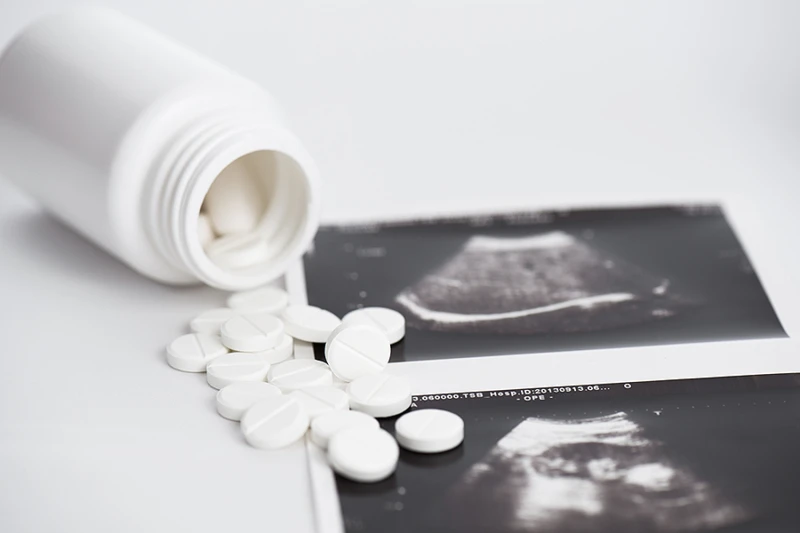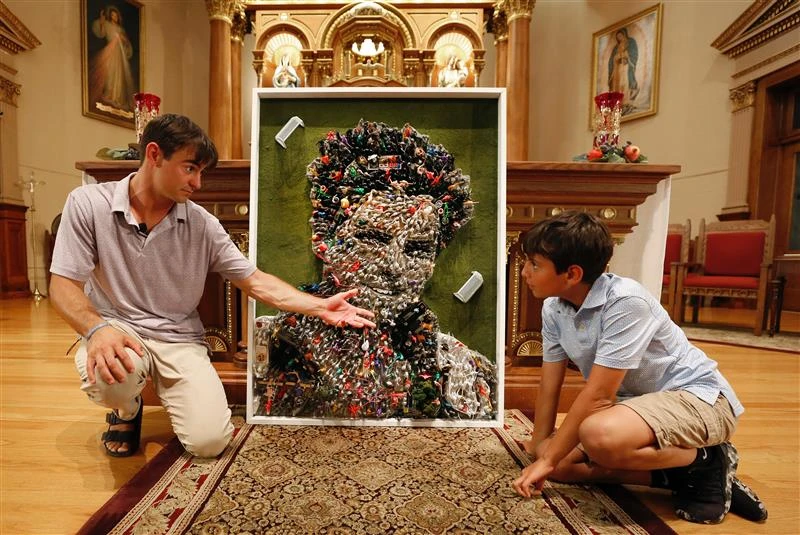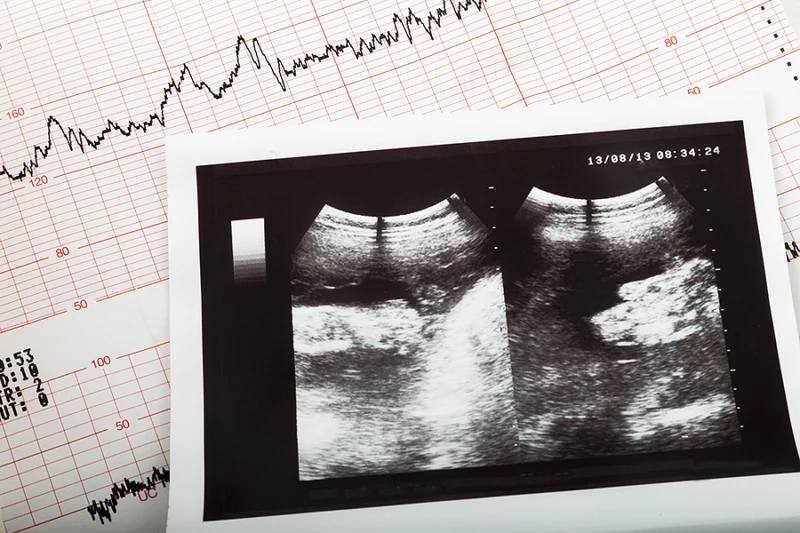

null / Credit: Tatiana Vdb via Flickr (CC BY 2.0)
Washington, D.C. Newsroom, Oct 6, 2025 / 07:00 am (CNA).
A Michigan-based program is providing thousands of dollars to expecting mothers to lessen poverty and improve babies’ health — and all that’s needed is an ultrasound and an ID.
The first community-wide and unconditional cash transfer program for new families in the United States called Rx Kids began with the mission to improve “health, hope, and opportunity.” The initiative began in January 2024 in Flint, Michigan, where enrolled mothers receive $1,500 during their pregnancies and an additional $500 a month for the first year of their child’s life.
In 2024, Dr. Mona Hanna, a pediatrician and the director of the Michigan State University-Hurley Children’s Hospital Pediatric Public Health Initiative, launched the program with the help of Luke Shaefer, the inaugural director of Poverty Solutions, an initiative that partners with communities to find ways to alleviate poverty.
The city of Flint had been struggling with childhood poverty, “which is a major challenge and economic hardship, especially for new families,” Shaefer told CNA. In order to find ways to combat it, Hanna spoke directly with mothers. They shared how impactful the 2021 expanded Child Tax Credit was, which provided parents funds to put toward necessities for their children.
The program had helped “child poverty plummet to the lowest level ever recorded,” Shaefer explained. He had worked on the program design himself, so he was brought in to help create Rx Kids with a similar goal.
The hope for Rx Kids was simply “to support expectant moms during pregnancy,” Shaefer said. Oftentimes, “the period of pregnancy and the first year of life is actually when families are the poorest,” he said. To combat this, the money helps fund food, rent, car seats, diapers, and other baby supplies and necessities.
Even families higher on “the economic ladder really struggle to make ends meet when they’re welcoming a new baby, which is really maddening because it’s such a critical period for the development of a child,” Shaefer said. “What happens in the womb, and then what happens in the first year of life, are fundamental to shaping the architecture for kids throughout the life course.”
Expecting mothers from all economic backgrounds can apply to the program. To enroll, women submit an ultrasound and identification to verify residency within the participating location. The only other qualification is that the mothers are at least 16 weeks along in their pregnancies or will have legal guardianship over the child after birth.
Funding and operations
Rx Kids is funded through a public-private partnership model that combines federal funds, often Temporary Assistance for Needy Families, and private support from philanthropic foundations, local businesses, and health care systems.
Since it started, the program has provided nearly $11 million in cash transfers to the more than 2,000 enrolled mothers in Flint. There have also been 1,800 babies being born in the city within the program.
The cash transfers are sent through the nonprofit GiveDirectly, which solely administers cash payments to families through programs like Rx Kids to lessen global poverty. It currently has operations in the Democratic Republic of Congo, Kenya, Liberia, Malawi, Mozambique, Rwanda, Uganda, and the U.S.
After seeing success with Rx Kids mothers in Flint, the program expanded to help Michigan families in Kalamazoo, Eastern Upper Peninsula, Clare County, and Oakland County. It has now enrolled more than 3,500 mothers, provided nearly $15 million in funds, and contributed to more than 2,800 babies.
“Not unlike the support provided by the nearly 100 pregnancy resource centers in Michigan whose staff and volunteers walk alongside women providing material support, counseling, and parenting classes, the Rx Kids program aims to care for women and babies during the challenging time of pregnancy and infancy by providing a no-strings-attached cash program,” Genevieve Marnon, legislative director at Right to Life of Michigan, told CNA.
“The pro-life community has long recognized that when women are supported, respected, and valued, they are more likely to choose birth to abortion and experience better health outcomes,” Marnon said.
In a state where abortion is “considered a constitutional right, every effort to ensure women have the support they need to make a choice for life is something to applaud.”
Success and benefits
“Programs like [Rx Kids] lead to healthier birth weights, lower rates of postpartum depression, and an atmosphere that celebrates each and every woman and child,” Maron said. “The data speaks for itself.”
Recently, Rx Kids received back “the first line of research that is looking really positive,” Shaefer said. Researchers from Michigan State University and the University of Michigan conducted a study published by the American Journal of Public Health that analyzed more than 450,000 births across Michigan.
The researchers reported that after the program launched in 2024, Flint experienced an 18% drop in preterm births and a 27% reduction in low birth weight when compared with the previous year and similar Michigan cities.
There was also a reported 29% reduction in NICU admissions, which prevented nearly 60 hospitalizations annually. The outcomes were linked to behavioral changes of women during their pregnancies, including increased prenatal care.
“We’re not forcing anyone to go to prenatal care, but when we provide the economic resources, they go,” Schaefer explained.
Church support
The Catholic Church in Michigan has also been in favor of the program. Jacob Kanclerz, communications associate for the Michigan Catholic Conference (MCC), told CNA that it helps provide “mothers facing difficult circumstances with the resources they need to make a choice for life and avoid resorting to abortion.”
MCC, which serves as the public policy voice for the Church in the state, “supports the Rx Kids program because of its direct assistance to mothers and children in need in lower-income communities in Michigan.”
In line with the Church, the program works “to promote and protect human life as well as provide for the poor and vulnerable in society,” Kanclerz said. MCC has supported funding in the state budget for the Rx Kids program and has testified in support of the expansion of Senate Bill 309, which would incorporate the program officially into state law.
At a hearing for the bill, Tom Hickson, vice president for public policy and advocacy for MCC, said: “By helping mothers pay for critical prenatal and infant health care services and other expenses surrounding childbirth, Rx Kids can help mothers provide their babies the care they need while in the womb and after they are born.”
He added: “This program has been a wonderful help to expectant mothers and their babies who need extra support during this critical stage of life.”
Rx Kids is currently helping Michigan families, but it also offers a startup guide for other states and communities interested in modeling the program. Schaefer said there is “a ton of interest” from other states that hope to implement the program.
There are two versions of the Rx Kids model that areas can implement, depending on their funding availability and goals. One offers $1,500 during pregnancy and an additional $500 each month for six months following the child’s birth. Communities can also model the original version implemented in Flint, which offers a $1,500 cash transfer during pregnancy, and the additional monthly funds for a whole year.
To secure funding, Rx Kids encourages communities to utilize public sources, state or federal dollars, and private support from philanthropic organizations that want to contribute to the mission of alleviating poverty and supporting babies and their mothers.
Read More













